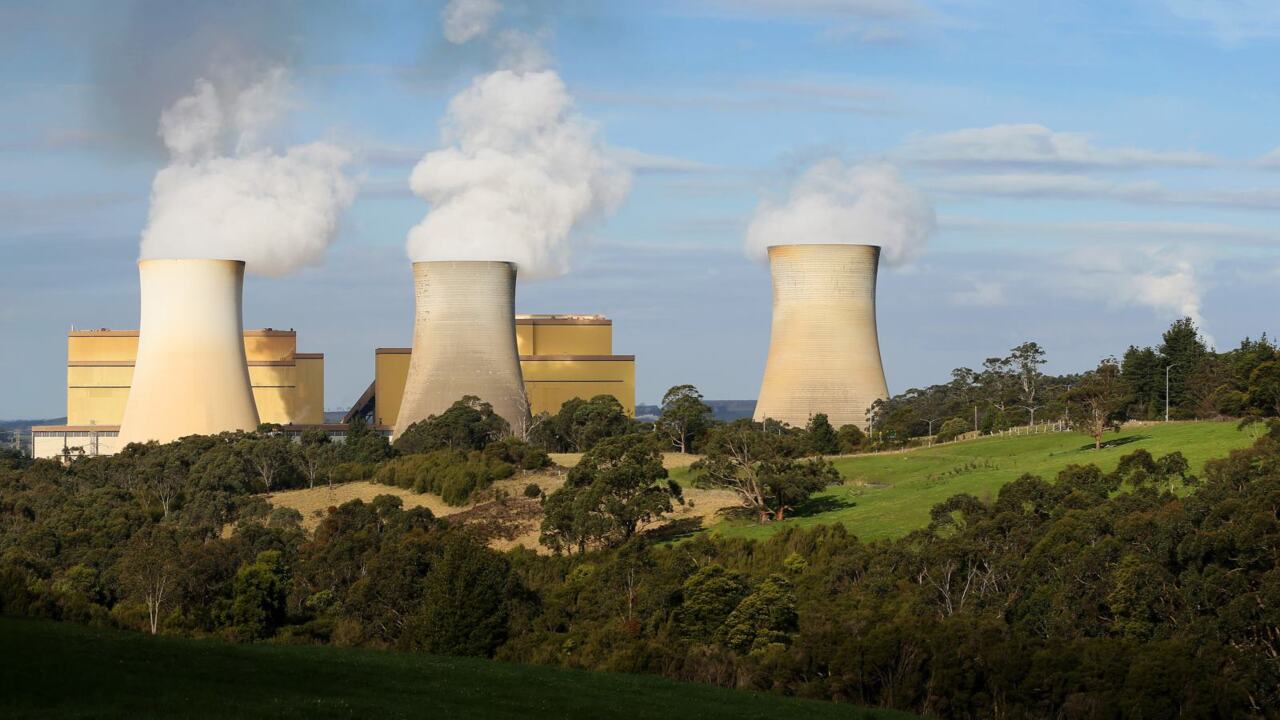Power outage threat in five states a major wake-up call
This week’s threat to our power supply shows all options should be on the table to end the perfect storm and Victoria’s “crazy” coal stance isn’t helping.

Opinion
Don't miss out on the headlines from Opinion. Followed categories will be added to My News.
When you see headlines about impending blackouts, it’s usually because there isn’t enough supply in the electricity grid to satisfy demand.
Makes sense, right? But that’s not what set off alarm bells about power outages in five states this week, which is why even though the lights stayed on, this crisis is a major wake-up call for state and federal governments.
Electricity supplies have been tight on the east coast for weeks because of outages at coal-fired generators, as well as flooding in some coal mines. This has put increasing strain on gas supplies that were already stretched by an early winter cold snap.
In turn, wholesale electricity and gas costs have shot up, adding fuel to the fire started by Russia’s invasion of Ukraine and the resulting sanctions that have played havoc with global energy prices.
This week, the wholesale price cap in the east coast market was triggered for the first time in more than decade, first in Queensland then the other states. While this succeeded in keeping electricity prices under control, it also made the supply situation even worse.
The reason the Australian Energy Market Operator started warning about targeted outages is because once the cap was activated, some energy generators stopped bidding their power into the market. A whopping 2000 megawatts was pulled out of the grid in Victoria on Tuesday, leaving the state facing a potential shortfall that night.
This was avoided, as it was in Queensland and New South Wales, because the market operator directed generators to come back online. They will now receive hefty compensation – that will ultimately be paid by households and businesses in their power bills – instead of capped prices that were lower than what they needed to cover their costs.
Some energy experts have described this as “unconscionable” conduct. Others are more circumspect, suggesting the power companies are merely responding to the market.
As the Grattan Institute’s Tony Wood told the Herald Sun, this is not a disaster if the price cap – and everything that flows from it – is only in place as a circuit-breaker.
“If this is to continue and it’s not fixing itself, then maybe something more interventionist is necessary,” he said.
“Following the rules of the market when the market can’t respond doesn’t help very much.”
The most obvious solution to rebalance the market and keep the lights on is to reboot struggling coal-fired stations as quickly as possible. That is easier said than done, and only the market operator will know how quickly these ageing plants can return to service.
Most other ideas on the table – and new federal Energy Minister Chris Bowen maintains everything is on the table – won’t solve anything overnight. None of these options should be discarded lightly, however, as the “perfect storm” he has described risks repeating in the months and years ahead.
While the Albanese government’s energy policy offers the certainty the market demanded for almost a decade under the Coalition, and will speed up the integration of new renewable generation, the forthcoming retirement of coal-fired stations brings more storm clouds.
Indeed, the modelling for Labor’s plan rests on the assumption that no retirements will be brought forward, and those timelines were already accelerating before last month’s election.
Bowen has smartly moved to speed up the implementation of a market capacity mechanism, which will subsidise generators that can make power available on demand to shore up the grid. But his Victorian counterpart Lily D’Ambrosio is refusing to support the mechanism sending any cash to coal-fired stations, having dubbed the proposal “CoalKeeper” last year.
This is “crazy”, in the words of the highly respected Kerry Schott, who drafted the plan as the head of the Energy Security Board. She has pointed out falling wholesale prices will still push coal out of the market, and that the mechanism could be designed to ensure the life of those generators was not prolonged by even a day.
It is also crazy because, as this column has previously highlighted, D’Ambrosio is the one who struck a secret taxpayer-funded deal to keep the Yallourn coal-fired station running.
Bowen has been upfront about the failings of the former Coalition government. While he wants to work with the states, he should be just as honest – at least behind closed doors if not in public – with the Victorian government. Their gas moratorium was similarly unhelpful.
Bowen and Resources Minister Madeleine King are also urgently reviewing the unused trigger to restrict gas exports. One option involves retooling it to be used in the event of skyrocketing prices, as we are seeing now, rather than supply shortages.
Before going down that path, they should consider the UK’s new windfall profits tax. As Wood argues, this would prevent producers whacking domestic users with the huge prices they can charge overseas. Even gas giant Santos cautiously backed the UK’s tax because it is paired with use-it-or-lose-it investment incentives to kickstart new supply projects.
This would arm Bowen and King with a carrot and a stick. Of course, the stick is what the new Labor government would fear if they dared break their no-new-taxes vow so soon after the election.
Tom Minear is Herald Sun national politics editor.





